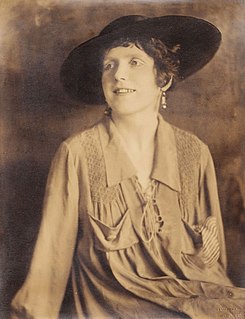A Quote by Mary Butts
I am old enough to remember what it was like when the theories of Freud first escaped from the study and the clinic, and the great game of Hunt-the Complex began, to the entertainment and alarm of a war-shattered and disillusioned world.
Related Quotes
I first read Freud's famous case study on hysteria based on his client Ida Bauer when I was in my twenties. It pissed me off so badly it haunted me for 25 years. But I had to wait to be a good enough writer to give Ida her voice back. And I had to go get my own first too. I not only know the case study inside and out, like most women, I lived a version of it. Maybe it's time for us to tell our versions.
I began to think of war, even so-called "good wars" like World War II, as corrupting everybody. Violence begetting violence. The good guys beginning to act like the bad guys. And when I studied the history of wars, it seemed to me that that was the case. Athens vs. Sparta in the Peloponnesian War. The Athenians presumably the democratic state. The Spartans the totalitarian state. But as the war went on, the Athenians began to act like the Spartans. They began committing atrocities and cruelties. So I saw this as a characteristic of war, even so-called "good wars."
We live in a society right now which is the last phase of the ecosystem in terms of the old entertainment value, or the old entertainment construction, which is we've gone down to this instant gratification, instant numbers, instant understanding, instant. But it's like the exact - it has perfected itself to the instant click, when, in a way, creativity originates as a much more complex beast. So we now have to reinvent a new canvas where we can indulge in it. And that's where the digital revolution creates a whole new ecosystem of entertainment.
You have only to play at Little Wars three or four times to realize just what a blundering thing Great War must be. Great War is at present, I am convinced, not only the most expensive game in the universe, but it is a game out of all proportion. Not only are the masses of men and material and suffering and inconvenience too monstrously big for reason, but-the available heads we have for it, are too small. That, I think, is the most pacific realization conceivable, and Little War brings you to it as nothing else but Great War can do.
Lions cannot afford to hunt mice because they literally will starve to death, even if they catch them. Lions and all large carnivores have to hunt game large enough to justify the investment, so they have to hunt antelope and zebra. Why is this important? Because most senior executives are really big on chipmunks.
Protestant parents still keep a Bible handy in the house, so that the children can study it, and one of the first things the little boys and girls learn is to be righteous and holy and not piss against the wall. They study those passages more than they study any others, except those which incite to masturbation. Those they hunt out and study in private.
I am suspicious and disillusioned about the uses and misuses of photography in the art world, the press, and the world of entertainment. And to make things more complicated, I don't think that the general public is well educated regarding images. Generally we are taught how to read, but we are not taught how to look.





































